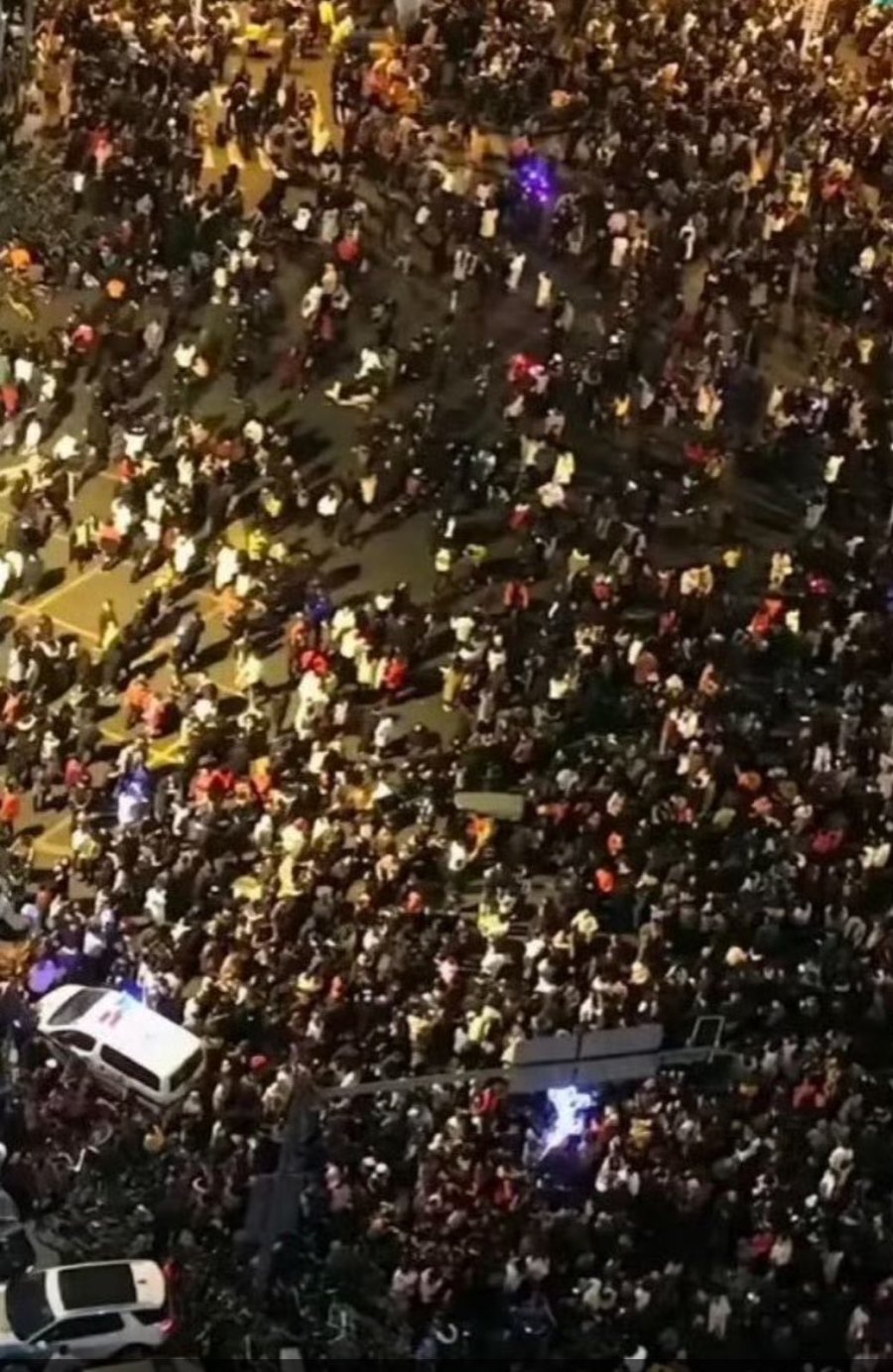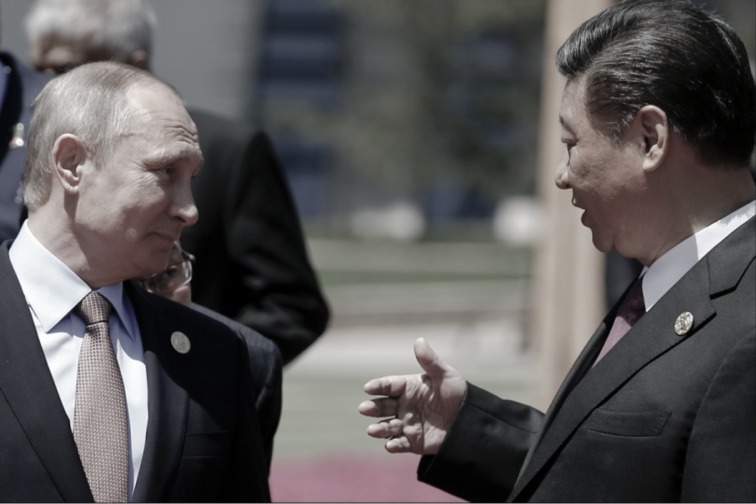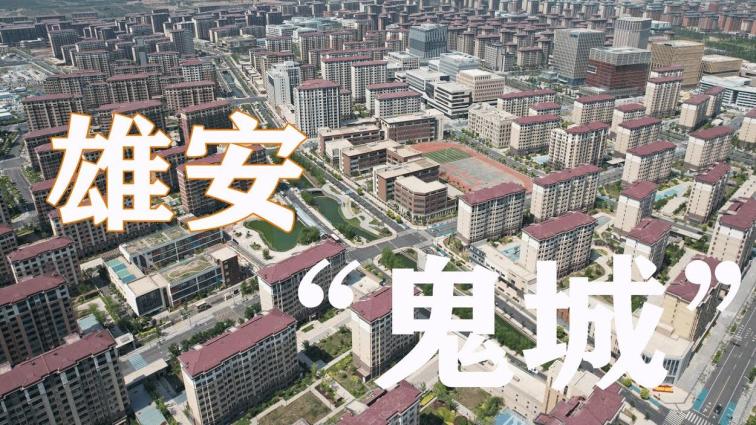A 14-year-old student in Jiangyou, Sichuan, was bullied. Thousands of citizens took to the streets in the early hours of August 5 to protest the government's inaction, only to be violently suppressed by local police. (Online image)
[People News] As large-scale protests erupted in Jiangyou, Sichuan, and were violently suppressed by the authorities, senior officials from Zhongnanhai convened in Beidaihe for intense internal power struggles. Reports suggest that Xi Jinping was furious upon hearing the news, prompting the elder faction and other opposition figures to question his governance capabilities.
The protests in Jiangyou have been forcefully quelled by the authorities. The Chinese Communist Party dispatched special police from other regions, who, in collaboration with local public security forces, brutally beat and arrested protesters. Videos circulating on social media depict police indiscriminately attacking and detaining unarmed protesters, resulting in chaotic scenes. Following this, the authorities blocked internet access, and discussions on the incident were suppressed in the media.
Du Wen, the executive director of the legal advisory office of the former Inner Mongolia Autonomous Region government, stated that reliable sources indicate the Jiangyou incident has reached high-ranking officials of the Chinese Communist Party vacationing in Beidaihe, inciting Xi Jinping's anger. The authorities have categorised this incident as the Sichuan version of the Weng'an incident, considering it one of the most serious local protests since 2008.
Reports suggest that Jiangyou Municipal Party Secretary Dong Zhenghong, along with the mayor and the public security director, have already been dismissed and replaced, although this has not yet been publicly announced. Du Wen noted that the authorities plan to use this approach to mitigate and distance themselves from the significant responsibilities at higher levels.
Reports indicate that Sichuan Province has dispatched a stability maintenance task force to Jiangyou overnight, taking direct control of local order, management, and aftermath handling. Concurrently, a supervisory team composed of central agencies has arrived in Jiangyou to conduct their work, representing Beijing in guiding and investigating the truth behind the incident.
Du Wen disclosed that this supervisory team reportedly includes high-ranking officials from the Central Political and Legal Affairs Commission, the Ministry of Public Security, the Ministry of State Security, and the General Command of the Armed Police, underscoring Beijing's significant concern regarding the incident. He analysed that these measures reflect the authorities' anxiety about the situation escalating and their efforts to swiftly regain control to prevent the Jiangyou incident from developing into a broader political crisis. This strategy aims to contain the conflict within Jiangyou and prevent it from reaching higher levels of government.
Du Wen believes that the repercussions of the Jiangyou incident extend well beyond the local context, with its impact on the senior leadership in Zhongnanhai becoming increasingly evident.
At present, it is a sensitive period for the Beidaihe meeting, where it is rumoured that two factions are engaged in intense struggles over central personnel arrangements.
Du Wen remarked that a significant blow from the grassroots in Jiangyou has introduced new uncertainties into the stable situation that Xi Jinping has carefully constructed.
At the protest site in Jiangyou, demonstrators chanted, 'Xi Jinping step down! The Communist Party step down!' Du Wen noted that this represents an unprecedented open challenge to Xi Jinping's personal authority. Furthermore, the Jiangyou incident has made Xi Jinping and his aides aware that undercurrents at the grassroots level are threatening the regime's foundation. According to official analysts, following the incident, senior Chinese Communist Party elders and leaders may seize the opportunity to question Xi Jinping's governing capabilities and policy direction. Xi Jinping's planned personnel arrangements and long-term governance strategy are likely to face significant challenges.
In reality, in 2025, a year characterised by economic decline and widespread social conflicts, similar protest events are increasing across China. During these protests, the chants of 'Down with the Communist Party' and 'Down with Xi Jinping' have emerged as the heartfelt cries of many Chinese citizens.
Du Wen noted that the Jiangyou incident serves as a reminder to the top leaders of the Chinese Communist Party that the true downfall of a dynasty is often not due to palace coups, but rather the overwhelming surge of public anger that accumulates. △











News magazine bootstrap themes!
I like this themes, fast loading and look profesional
Thank you Carlos!
You're welcome!
Please support me with give positive rating!
Yes Sure!